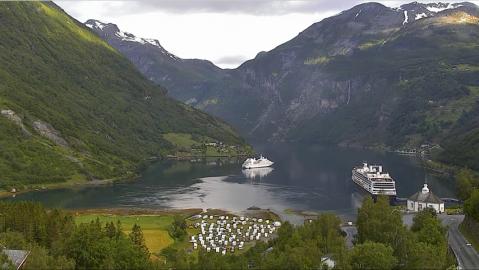1. Technocracy and Centralized Control Aaron Day outlines technocracy as a system where elites, often backed by powerful organizations, choose scientists and engineers to make societal decisions, essentially nullifying individual autonomy. He notes that the World Economic Forum (WEF) and United Nations (UN) are leading the charge for this form of governance. "Technocracy is basically a form of government where elites pick scientists and engineers to make decisions for people. It’s essentially the end of free will." Day traces the origins of this technocratic agenda back to the 1930s and links it to the current push for the UN’s Sustainable Development Goals. He further explains that at the core of technocracy lies a goal to replace the "price-based economy" with an "energy credit-based system," a process already in motion.
2. Central Bank Digital Currencies (CBDCs) Day argues that CBDCs will be the primary tool of control in this new system. These digital currencies are not just future possibilities—they are already being implemented in various forms. "We already have a central bank digital currency... our money supply is already 92% digital." By tying money to carbon credits and social behaviors, technocrats can track, censor, and program the economy down to individual purchases: "Once they can program and control your money, they have complete control over your behavior." Day emphasizes that this will allow for granular control, such as determining "what foods you can buy," in an effort to regulate behavior under the guise of environmentalism and social goals.
3. WHO, Club of Rome, and Trilateral Commission’s Role in Technocracy Day highlights several key organizations that push technocratic control globally, including the World Health Organization (WHO), the Club of Rome, and the Trilateral Commission. These organizations are, in his view, the backbone of the technocratic agenda. The Club of Rome, for instance, has long propagated the concept of scarcity to justify strict control over resources. "The Club of Rome has been putting out material about we're all going to die... this whole narrative around carbon and alarmism tracks back to the Club of Rome." The Trilateral Commission, founded in the 1970s, pushes globalization and technocracy from the top down. "All but one member of Jimmy Carter’s cabinet was a member of the Trilateral Commission." Day warns that these organizations, alongside the WHO, UN, and WEF, have created a framework where global policies can be imposed without democratic consent. "They use matching taxpayer funds to push the agenda of multinational corporations."
4. Tokenization and Asset Control Expanding beyond money, Day warns about the tokenization of assets, which is another tool of technocracy. "They’re going to tokenize all of our assets... and put them on the same platform with CBDCs." He explains that even non-monetary assets like homes, cars, and personal property will be tokenized, allowing centralized control and surveillance of individual assets. This is part of a broader push to control behavior and restrict what individuals can buy, sell, or trade based on their compliance with social and environmental goals.
5. Surveillance and Social Credit Systems Day fears that CBDCs will ultimately tie into a global social credit system, similar to what already exists in China. He explains that "the ultimate goal is to tie your digital money to a social credit score," allowing governments and corporations to monitor and regulate individual behavior. This system is already being tested, as seen with initiatives like the Doconomy MasterCard, which tracks carbon emissions and can cut off transactions once a carbon limit is exceeded. "MasterCard has put together relationships with over 150 different companies... they’re already tracking the impact of your financial transactions on carbon."
6. The Role of Politicians and Corporations Day is critical of both political parties and their complicity in advancing technocratic agendas. "Republicans and Democrats don’t control anything—it's all about who controls the money." He emphasizes that politicians are mere figureheads, enacting policies designed by powerful organizations like the Trilateral Commission and the Club of Rome. "None of these politicians write their own bills; they’re written by lobbyists, bankers, and other elites." Day insists that no political solution will prevent technocracy from taking over, arguing that the only way to resist is through alternative systems of exchange, such as cryptocurrencies and precious metals. "We either fight and defeat the technocracy, or we submit to it. There is no coexistence with technocracy."
2. Central Bank Digital Currencies (CBDCs) Day argues that CBDCs will be the primary tool of control in this new system. These digital currencies are not just future possibilities—they are already being implemented in various forms. "We already have a central bank digital currency... our money supply is already 92% digital." By tying money to carbon credits and social behaviors, technocrats can track, censor, and program the economy down to individual purchases: "Once they can program and control your money, they have complete control over your behavior." Day emphasizes that this will allow for granular control, such as determining "what foods you can buy," in an effort to regulate behavior under the guise of environmentalism and social goals.
3. WHO, Club of Rome, and Trilateral Commission’s Role in Technocracy Day highlights several key organizations that push technocratic control globally, including the World Health Organization (WHO), the Club of Rome, and the Trilateral Commission. These organizations are, in his view, the backbone of the technocratic agenda. The Club of Rome, for instance, has long propagated the concept of scarcity to justify strict control over resources. "The Club of Rome has been putting out material about we're all going to die... this whole narrative around carbon and alarmism tracks back to the Club of Rome." The Trilateral Commission, founded in the 1970s, pushes globalization and technocracy from the top down. "All but one member of Jimmy Carter’s cabinet was a member of the Trilateral Commission." Day warns that these organizations, alongside the WHO, UN, and WEF, have created a framework where global policies can be imposed without democratic consent. "They use matching taxpayer funds to push the agenda of multinational corporations."
4. Tokenization and Asset Control Expanding beyond money, Day warns about the tokenization of assets, which is another tool of technocracy. "They’re going to tokenize all of our assets... and put them on the same platform with CBDCs." He explains that even non-monetary assets like homes, cars, and personal property will be tokenized, allowing centralized control and surveillance of individual assets. This is part of a broader push to control behavior and restrict what individuals can buy, sell, or trade based on their compliance with social and environmental goals.
5. Surveillance and Social Credit Systems Day fears that CBDCs will ultimately tie into a global social credit system, similar to what already exists in China. He explains that "the ultimate goal is to tie your digital money to a social credit score," allowing governments and corporations to monitor and regulate individual behavior. This system is already being tested, as seen with initiatives like the Doconomy MasterCard, which tracks carbon emissions and can cut off transactions once a carbon limit is exceeded. "MasterCard has put together relationships with over 150 different companies... they’re already tracking the impact of your financial transactions on carbon."
6. The Role of Politicians and Corporations Day is critical of both political parties and their complicity in advancing technocratic agendas. "Republicans and Democrats don’t control anything—it's all about who controls the money." He emphasizes that politicians are mere figureheads, enacting policies designed by powerful organizations like the Trilateral Commission and the Club of Rome. "None of these politicians write their own bills; they’re written by lobbyists, bankers, and other elites." Day insists that no political solution will prevent technocracy from taking over, arguing that the only way to resist is through alternative systems of exchange, such as cryptocurrencies and precious metals. "We either fight and defeat the technocracy, or we submit to it. There is no coexistence with technocracy."
- Category
- ATLANTIC ROAD
Commenting disabled.













